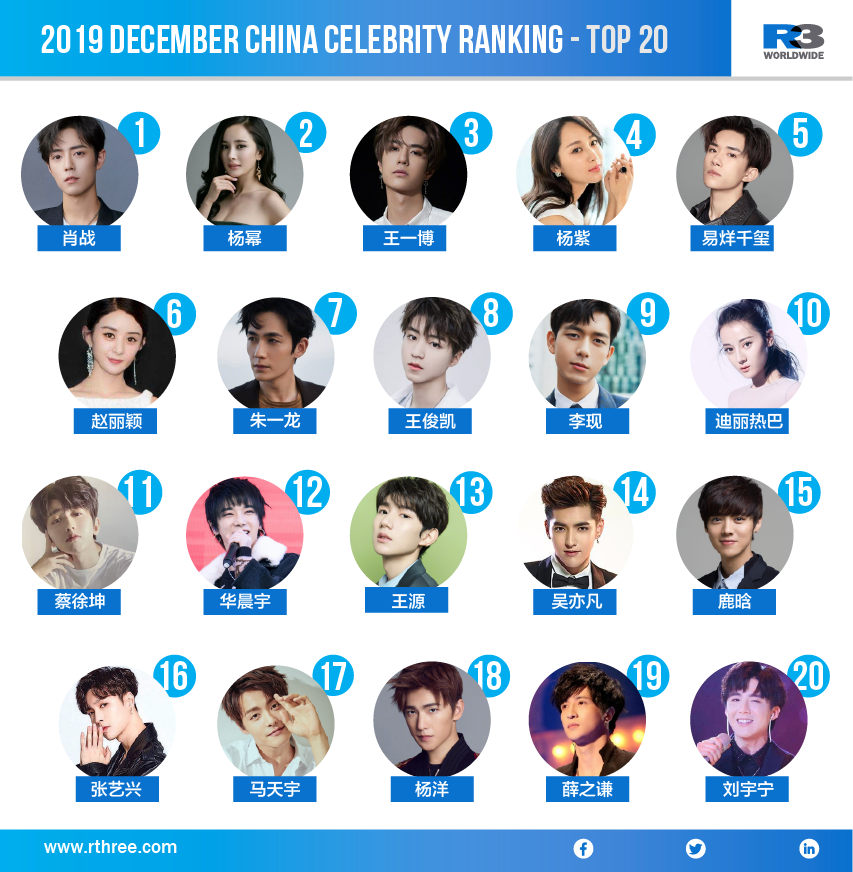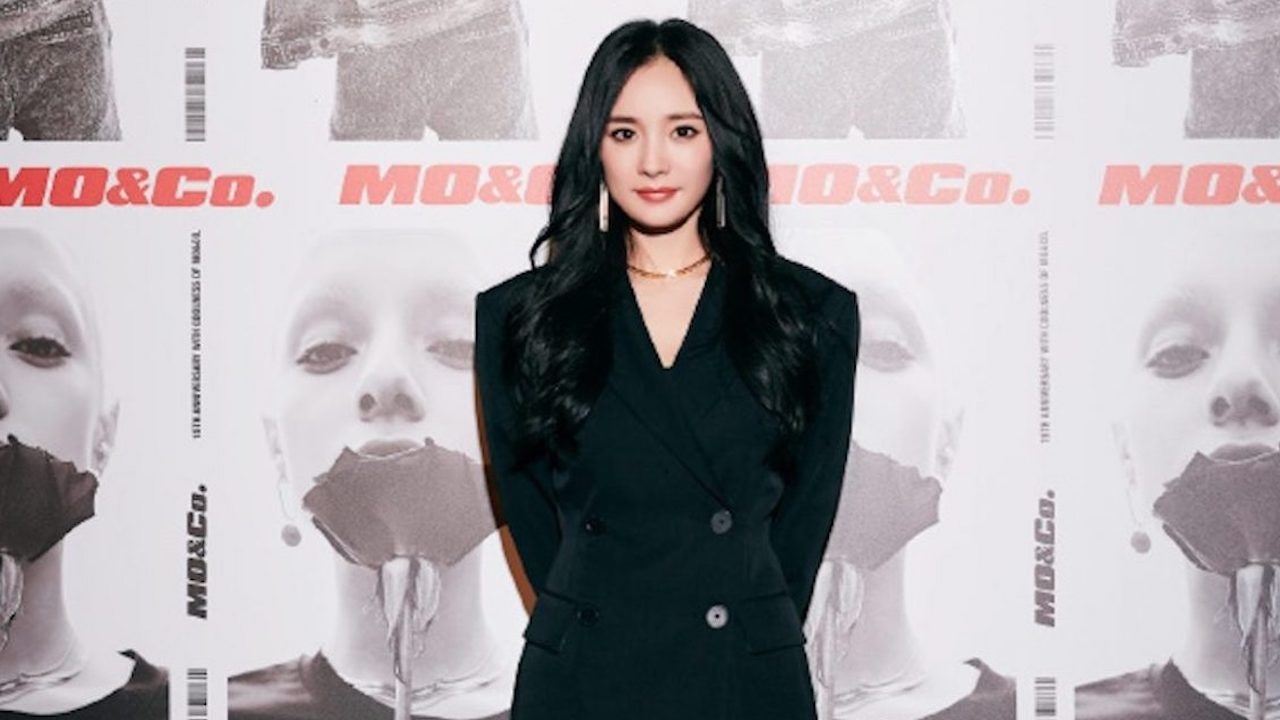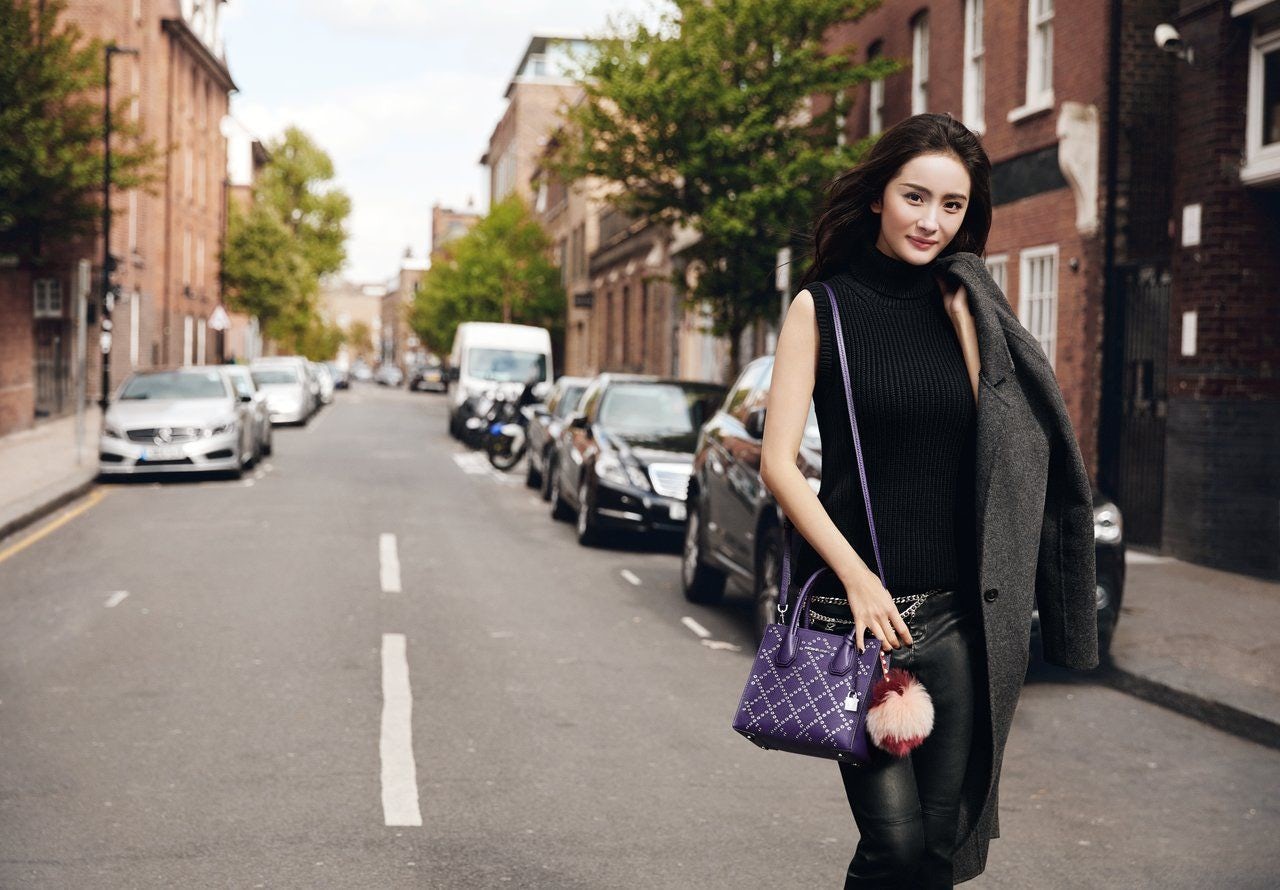Last year, the popular Chinese actress Yang Mi frequently placed among the top 10 in R3’s Celebrity Ranking list thanks to her growing commercial value. And now, with her appointment as the new brand ambassador for the Chinese fashion brand, Moamp;Co., it’s no surprise to find her at the number 2 spot for December’s ranking.

Yang Mi has already been the face for many US affordable luxury brands like Michael Kors and Stuart Weitzman. Her success, in part, has been guided by her ability to promote brands in her public as well as private life. For example, as the brand ambassador for Michael Kors, she’s been seen in the brand’s clothing at glamorous events such as the Met Gala and various film premieres but has also been seen sporting the brand while making her way through an airport.
With her appointment to be the face of Moamp;Co. this past December, Yang Mi has aligned herself with a well-liked female fashion label that belongs to the parent group of EPO, which also owns other high-end lines: Edition 10, the children’s line Little Moamp;Co, the makeup brand REC, and the male fashion brand Common Gender. By signing Yang Mi, however, Moamp;Co. has signaled a key change in their China celebrity strategy.
At first, the Guangzhou-based Moamp;Co. acted like Western brands entering China. It was based out of Paris and originally had the tag line Moamp;Co de Paris. Its first brand ambassador was the Danish supermodel, Freja Beha Erichsen, who was unknown to most Chinese consumers. Fast forward to today, with many Western brands struggling to remain relevant to Chinese consumers, Yang Mi appears to be a good choice for China’s changing luxury market. She has a large and dedicated audience via her social channels to communicate the brand’s values, while also regularly getting picked up by established media, which has the potential for viral opportunities.
Moreover, like Moamp;Co., many Chinese fashion labels are increasingly choosing local celebrities as brand ambassadors to better connect with mainstream Chinese consumers. For example, NEIWAI, a Chinese intimate wear brand, appointed the Chinese supermodel Du Juan as their brand ambassador, and another well-known supermodel, Liu Wen, was appointed to the Chinese fashion brand Dazzle, and Erdos. The trend speaks about the rising confidence of Chinese fashion makers, of them no longer needing a Western face to legitimatize their business.
Last year also saw the power dimension between Western luxury brands and China shifting as well. Among the many missteps for Western luxury brands in China, the T-shirt controversy episode caused a number of Chinese brand ambassadors to cancel their contracts with the offending brands. Yang Mi, herself, canceled her contract with Versace, despite the fact that she had just signed with them. For Chinese celebrities, this shows one of the potential risks of working with a Western brand, whereas local brands are more aware of the political sensitivity in China.
And as the rise of national sentiment among Chinese millennials continues to increase, homegrown Chinese brands may no longer need a Western face to validate their brands. Instead, like Moamp;Co., the change to a local face to leverage their understanding of local consumers will continue to serve as an advantage to differentiate themselves from their Western counterparts.

